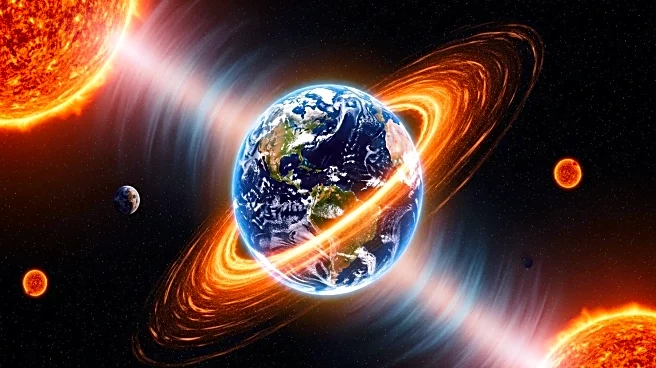What is the story about?
What's Happening?
Scientists from the University of Michigan have raised concerns about geomagnetic storms caused by solar 'space tornadoes,' which could lead to global internet outages. These storms, resulting from plasma eruptions on the sun, pose a significant threat to technological infrastructure, potentially costing the U.S. economy $7.2 billion per day. The researchers propose a constellation of spacecraft, powered by solar sails, to improve early warning systems and mitigate these risks.
Why It's Important?
The potential impact of geomagnetic storms on global connectivity underscores the vulnerability of modern technological infrastructure. Disruptions to satellite operations and power grids could have widespread consequences, affecting communication, navigation, and economic activities. The proposed advancements in space weather detection could enhance preparedness and reduce the risk of catastrophic outages, safeguarding vital infrastructure and minimizing economic losses.
What's Next?
The University of Michigan's proposal for a constellation of probes represents a significant step forward in space weather research. Implementing such a system requires international collaboration, robust funding, and continued research. Future advancements may explore the integration of artificial intelligence to enhance predictive capabilities, facilitating data sharing and improving forecast accuracy.
















